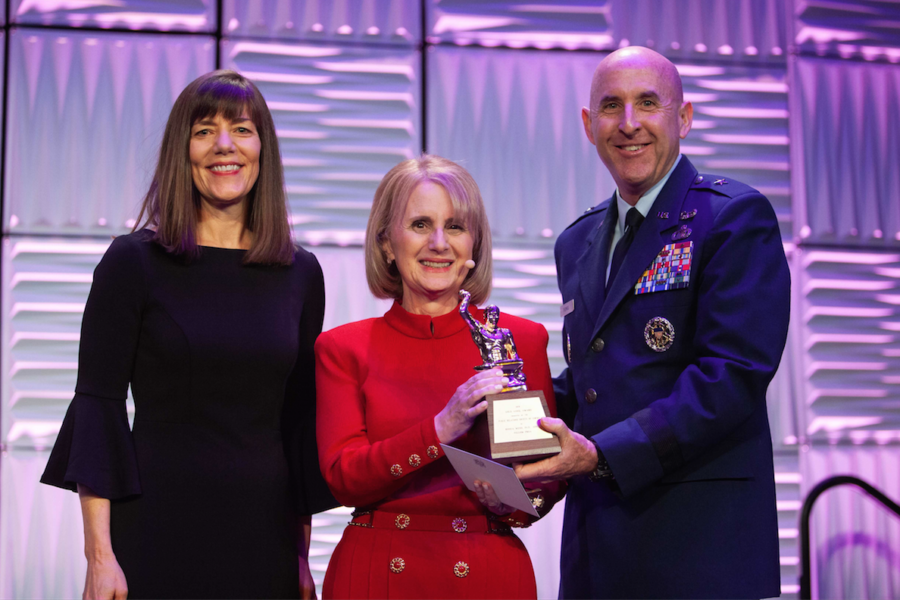Dr. Kate O’Neill, an Associate Professor of Management at the American University of Afghanistan in Kabul (AUAF) and a 2011 graduate of Antioch’s PhD in Leadership and Change program, lives in a world where there are no boundaries or limitations.
O’Neill grew up in a family where instead of bedtime stories, her mother read her TIME magazine. As a child, it was common for international students to be at her family’s dinner table as her mother often hosted exchange students from a nearby college. When O’Neill was 14, she first became an expat, moving to Argentina as an exchange student—and the door to the globe never closed.
“There was always this expectation that I would go out into the world and there were no barriers to it,” said O’Neill, who has lived in eight countries, including Guatemala, Japan, United Arab Emirates, and currently, Afghanistan.
Earning her first degree in Spanish language and literature, O’Neill initially thought she would be an interpreter, but as she followed her career path, eventually earning a master’s in Adult Education & TESL/TEFL, her work morphed into not only empowering her students with language skills, but leadership. It became clear to her that earning a PhD was the way to become a professor dedicated to her other mission of social change.
When she began at Antioch, O’Neill was living in Abu Dhabi, United Arab Emirates, working as a Business Communication instructor at Zayed University, where she had been for seven years. She didn’t want to leave her home and job, and the program’s flexibility let her earn her degree, despite an extreme geographic distance.
“It allowed me to keep my life and still pursue my PhD,” said O’Neill when she started in 2008.
The program was also an ideal fit for O’Neill because of the faculty’s acceptance of her unique leadership perspective, which includes diverse voices that are not only from the ‘Global West’.
Said O’Neill: “I was an anomaly. Their willingness to take a risk meant I was a real disruptor, but I was never made to feel uncomfortable. Antioch gave me the confidence to speak up.”
After 15 years of living in the United Arab Emirates, O’Neill and her family moved back to the United States. She became the director of the Masters of Strategic Leadership program at Mount Mercy University in Iowa, but felt something was missing—the social justice component.
“I believe education is such a powerful tool for social change,” said O’Neill. “For 15 years, I worked with people who after decades of immense foreign influence were desperately hungry for education as a tool for self-expression and self-determination.”
When the opportunity came up in Kabul, where the American University of Afghanistan’s motto is “Educating tomorrow’s leaders,” especially women, O’Neill knew she had to go for it. Her three children, and husband, who still live in the United States, support her decision to live Antioch’s motto.
In her role as a professor of management, O’Neill lives on campus for security reasons, works six-days-a-week for 10 to 14 hours a day, and loves her job.
“We are overworked, we are overwhelmed, and I am blissful,” said O’Neill. “My students risk their lives every day. Every time they come or go out of the university gates, they literally risk their lives, someone could kill them or kidnap them. How can you not want to give them your all?” Recently, after more than three years of captivity, two kidnaped AUAF professors were released and in 2016, 14 faculty, students, and staff died in a 10-hour attack on the AUAF campus by the Taliban.
O’Neill and an Afghan colleague at AUAF are engaged in a nationwide study to gain an understanding of effective leadership from the Afghan perspective. She says this information is key for the country’s future business leaders.
“The world’s view is so limited on Afghanistan—that it is only war and conflict,” said O’Neill. “The day-to-day reality is like the rest of us, average Afghans get up in the morning, get the kids to school, and go to work. This is the side of Afghan that is ignored. There is a lot of good here, and I hope I can be a part of helping Afghanistan prepare itself for a future of peace and prosperity. I am working to help Afghanistan prepare itself for life when the conflict ends.”

